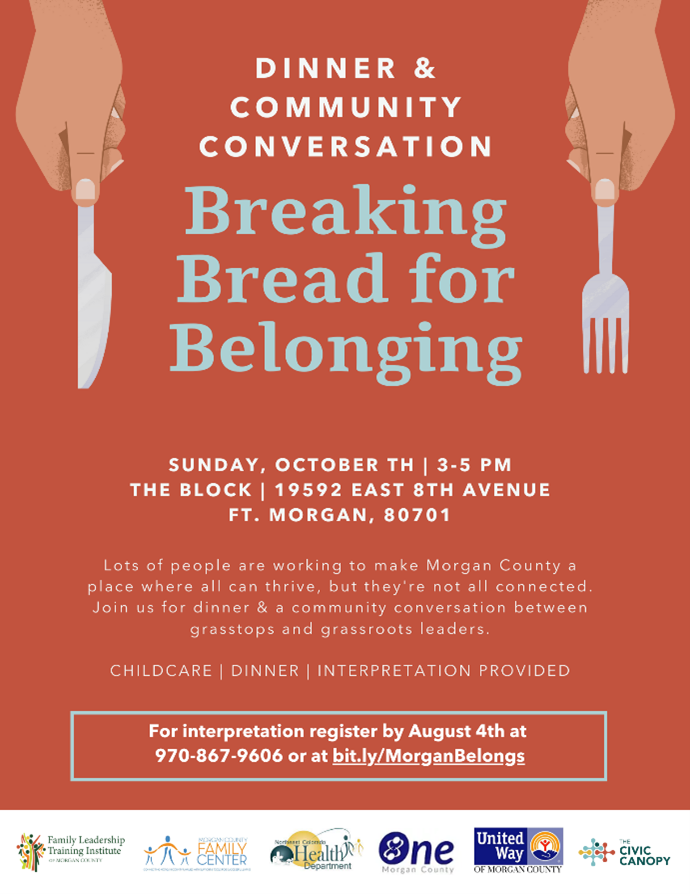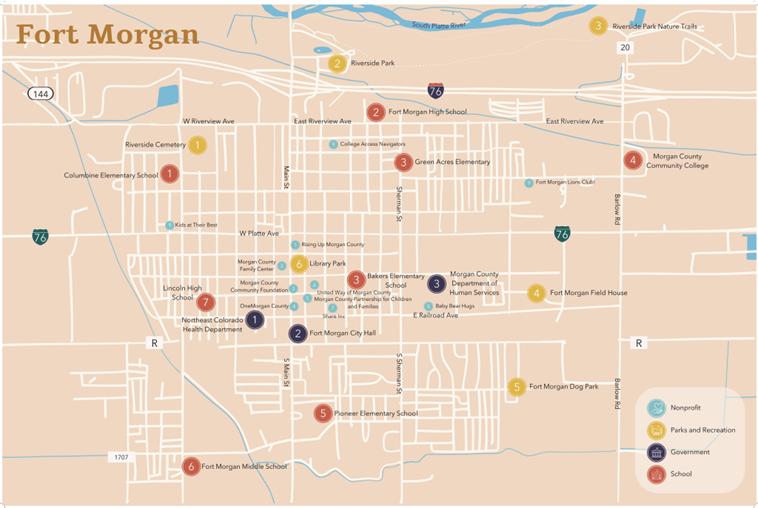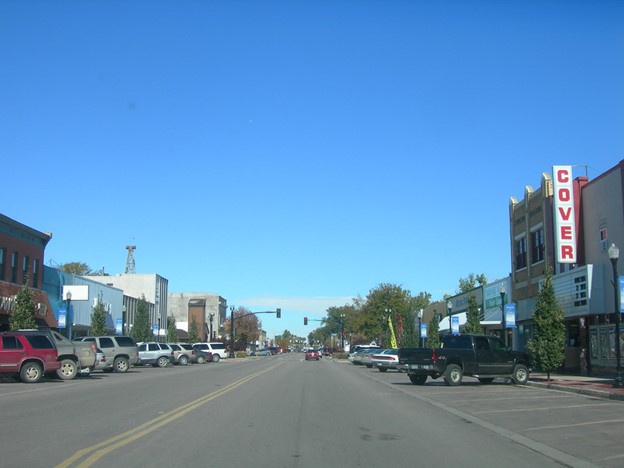Across northeast Colorado’s rolling plains, you’ll find one of the most diverse communities in Colorado: Fort Morgan. Recent census data shows that the town’s two largest ethnic minority groups constitute 55.1% of the total population, with 48.4% identifying as Hispanic or Latino, and 6.7% identifying as Black or African. This is a big shift from a community as recently as 1970, reported as 99.9% white.
This shift didn’t happen overnight. In the 1960s and 70s, Fort Morgan expanded its industry to include beef processing and meat-packing plants. When short-term, migrant labor wasn’t enough to keep up with demand, the plants began recruiting immigrants and refugees who would settle in the area. Today, you can regularly hear Spanish, French, and Somali spoken as folks from Somalia, East Africa, and Latin America call Fort Morgan home. While some have embraced the change, others have struggled to understand how more recently arrived newcomers fit into the Fort Morgan community—while newcomers themselves grapple with how to carve out a place for themselves in this new home.
Fort Morgan has seen tensions related to shifting demographics manifest themselves differently over the past few years with heightened awareness of new immigrants facing fear and loneliness, local industry struggling to recognize changes in culture, and reports of possible hate crimes targeted against muslim community members. It is no news to anyone to hear that inclusion and belonging has been a topic front and center for advocates and community organizations that seek to make Fort Morgan a welcoming city that can—and has—thrived on the diversity of its community.
The Morgan County Family Center (MCFC) is one such organization. MCFC supports folks who want to create change in their community as family leaders using the Family Leadership Training Institute (FLTI) framework as a core approach. Family leaders participate in an intensive 20-week training experience that teaches them how to get involved in civic life, engage in tough conversations, and represent their communities equitably.
In 2023, family leaders participated in a special program of FLTI called the Rural Action Project that gave them the tools to talk to fellow community members about what they wanted to see happen in their city. From both City leadership and community culture perspectives. These four themes emerged from their conversations:
- More collaboration and working together – being better listeners to the needs of the community and taking personal responsibility to meet those needs
- Equality and accountability – providing more accessibility options for language and working to eliminate bias based on politics/nationality/language spoken. Equal opportunity for progress and thriving.
- Leadership, strengths, doing hard work – highlighting others’ strengths and creating more avenues for equal representation in county/community leadership
- More community involvement – creating more spaces and opportunities for people to come together and get connected

In response, Civic Canopy partnered with MCFC to host two events, which quickly turned into three as the demand for conversation across differences grew. We started with an event called “If you’re not at the table, you’re on the menu,” which trained FLTI family leaders on how to tackle some of the most common barriers to joining decision-making tables like boards and commissions in Fort Morgan. From there, twenty family leaders joined ten traditional community leaders for a speed dating event (traditional referring to a recognized position of power as opposed to community leadership). Each family leader got just five minutes to talk with each traditional leader before having to move to the next. In the end, they told us this just wasn’t enough time and they didn’t want the conversation to end.
Next, we launched Breaking Bread for Belonging, a community dinner conversation where people could come together to talk through what belonging looks like in Fort Morgan. Throughout one entire Sunday afternoon, over 50 residents came together to talk with the support of interpreters in four different languages. They mapped areas where they felt the most and least belonging in Fort Morgan, shared stories, and turned to the future. They looked at what connections between local organizations currently foster belonging and where new connections could be built. By the end, they said:
- “For Fort Morgan to be a better place, each one of us needs to work together. People need to build connections.”
- “We need to give people and places a 2nd chance and we need to go out of our comfort zone.”
- “Still a lot of work to be done in Morgan County to create belonging.”
Once the event series had come to an end, they asked: when can we talk again?

MCFC has decided to keep the conversation going. After each FLTI program, MCFC will host the three events, engaging residents throughout the community. The family leaders from the most recent cohort will decide on the topic of conversation. This year, their top priorities were health, security, education, and housing, so we narrowed in on a conversation guide from Living Room Conversations on Resilient Schools, Resilient Kids.
At a time when more and more people are turning away from civic life because it feels toxic or polarizing, one of the most powerful things we can do is also the simplest: talk to each other. In Michelle Obama’s words, “It’s hard to hate up close,” as we get to know each other, our stories about the “other” start to unravel. The work of MCFC shows that not only is it possible to have conversations across differences, but we’re hungry for them, so let’s eat.


